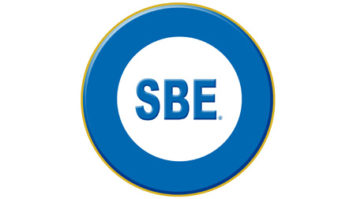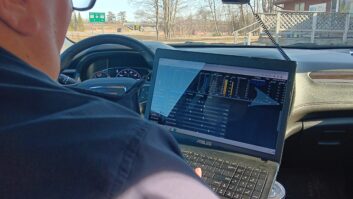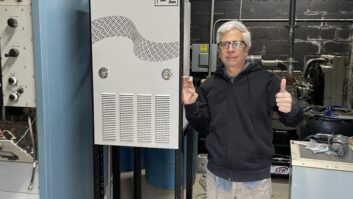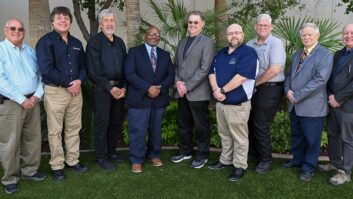For the past decade or more, radio and television managers have been dealing with a dilemma: Many veteran engineers are retiring while few skilled young people are stepping in to take their place.
Leaders of the Wisconsin Broadcasters Association are well aware and are taking a proactive approach. Their strategies include working with colleges and vocational schools that have relevant courses, encouraging the use of apprenticeships, and hosting conferences and seminars, sometimes in conjunction with the Society of Broadcast Engineers.
Their goal is to provide young adults with opportunities to understand the engineering profession while giving them the training, mentorship and guidance they need to succeed.
MTI
One of WBA’s most popular initiatives is the Media Technology Institute. It was founded in 2012 by veteran engineer Terry Baun, a past president of the SBE. It is a three-day series of seminars to educate attendees about broadcast engineering and technology, held in conjunction with the WBA’s summer conference.
In 2023 WBA renamed it to become the WBA Duke Wright Media Technology Institute, honoring the late Duey “Duke” Wright, a pioneering broadcaster who owned Midwest Communications, including more than 80 radio properties in nine states, and had a passion for engineering.
Engineer Bill Hubbard assumed the institute’s leadership role in 2019 after spending some 30 years working in the University of Wisconsin system, including a decade at UW-Green Bay. He is a charter member of SBE Chapter 80, which serves central and northeast Wisconsin, and was named SBE James C. Wulliman Educator of the Year in 2019.
Hubbard and Baun worked together from the institute’s earliest days, envisioning it as a way to train people in the basics of broadcast engineering. But as time passed, Hubbard noticed that experienced engineers wanted to attend too, to enhance their skills. Even some general managers signed up.
As might be expected, many of the institute’s presentations focus on topics like transmitter maintenance or repairing versus replacing equipment. But others are about practical matters like preparing for an FCC inspection or contemporary issues like information security. Given all that today’s engineers need to know, Hubbard now uses the phrase “media technology” rather than “broadcast engineering.”
Hubbard says there is also a focus on helping technical people understand the business of broadcasting and improving their communication skills, especially when talking with non-engineers.
“Knowledge of technology alone is not a key to success. Engineers need to communicate with all the departments [at the station] in a way that is understandable.”
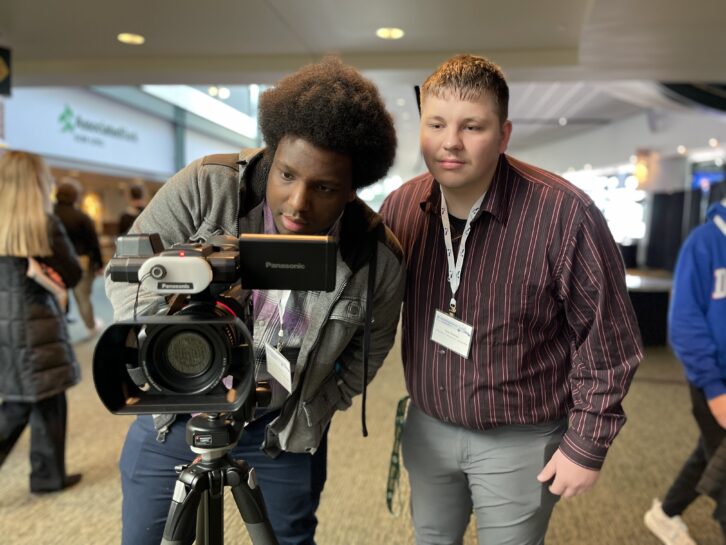
Help from the state
Andy Smock, chair and associate professor in the Department of Radio TV Film at the University of Wisconsin’s Oshkosh campus, is developing a program called Media Engineering. He believes the word “broadcast” no longer has much meaning to contemporary students.
Although his school has award-winning outlets WRST-FM and Titan TV, he says most students who get involved want to focus on sports reporting. Yet students in the department also get hands-on experience working with the equipment, setting up for events, and doing audio and video production.
Conversations with Bill Hubbard and with Bill Kerkhof, director of engineering for the department, led Smock to conclude that it could play an important role in training the next generation of engineers. Many of the necessary courses existed already, so he believes the new program will be well-received.
Another avenue for developing engineers is a new media broadcast technician apprenticeship program offered through the Wisconsin Department of Workforce Development.
Amy Phillips is the youth apprenticeship program coordinator there. She said that based on feedback from WBA President/CEO Michelle Vetterkind, Vice President Kyle Geissler, Bill Hubbard and numerous station managers, she identified 16 desired competencies, skills that industry professionals are looking for in the people they hire for media engineering work.
In 2020 the state debuted a Youth Apprenticeship for Media Broadcast Technicians, a two-year program. Phillips has been recruiting high school students who are enrolled in broadcasting, communications, information technology and science, technology, engineering and mathematics, who might have an interest in a media apprenticeship pathway.
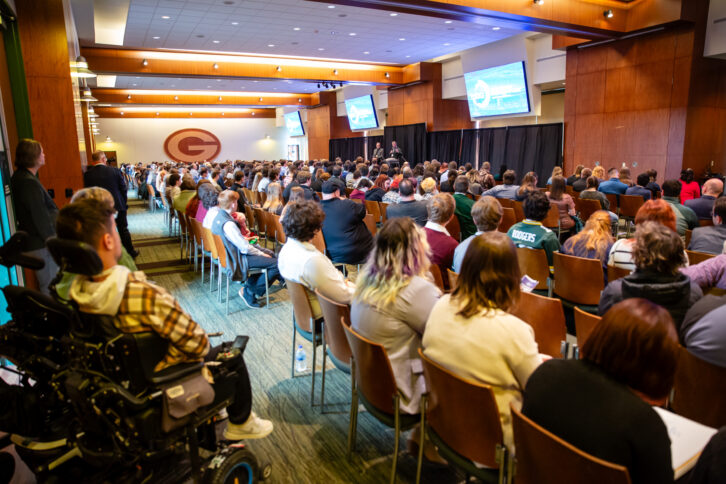
Kyle Geissler is working to provide another facet for the WBA approach: reaching out to high school students and encouraging them to consider careers in broadcasting.
He said WBA has cultivated a relationship with SkillsUSA, which partners students and professionals and focuses on skilled trades. The organization is known for its competitions; when Geissler attended one, he was impressed with the enthusiasm he saw.
“They have several competitions that are related to media, in which high school students compete. It’s a great opportunity to get those students interested in broadcasting [and] connected with our members.”
WBA held a student forum in February at the famous Lambeau Field, home of the Green Bay Packers, to provide information about a variety of careers in media. About 200 high school and 200 college students came to the venue; the event featured a job fair, speed networking and a keynote address from Packers Radio Network broadcasters and WBA Hall of Famers Wayne Larrivee and Larry McCarren.
Geissler hopes events like this will encourage young people to expand their perceptions of media and “think about engineering, not just sportscasting or news.”
Persistence
WBA’s outreach to students was led for many years by Linda Baun, who was the association’s vice president at the time. She organized an annual WBA Student Seminar, where attendees came from around the state for a day of training, discussion and networking.
Engineering remains a passion of Baun’s. “That’s where my heart is,” she says. She is an SBE Fellow who continues to promote engineering as a profession, carrying on the work of her late husband Terry. She said he believed strongly in the importance of education and took a learn-by-doing approach, including giving people permission to make mistakes.
She sees WBA seminars as valuable in providing opportunities for engineers to brainstorm and learn new things.
But while the broadcast veterans quoted in this article are excited about the programs and seminars, they acknowledge the challenges.
Pay for engineers is still low, and Linda Baun notes that over the years, engineering often has not been accorded the respect that other broadcast disciplines have. And even with the expanded outreach, finding new engineers is challenging.
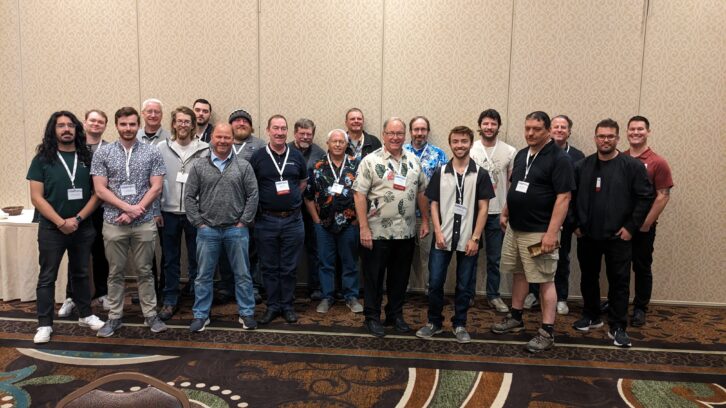
Steve Brown recently retired as director of broadcast engineering for Woodward Community Media. Brown says his company had to do a lot of local and national advertising over an extended period before identifying a good replacement. Broadcast executives around the country often make similar comments to Radio World about the difficulties of filling technical positions.
Brown feels that the WBA and Wisconsin state government “are on the right track” but believes there is more to do. For example, while he likes the idea of on-the-job training, “we need to get to the next step now, and that is actually finding and placing students in these apprenticeships.”
And that has been slow to occur. Linda Baun and several others told us that stations may be hesitant about internships and apprenticeships perhaps in part because of concerns about liability.
But Bill Hubbard believes that media technology is a rewarding profession and that it has a bright future.
“It’s open to anyone, male or female. You just need a curiosity about how things work.” He and his colleagues will continue to take that message all around the state.
As Linda Baun put it, “We’re not just talking. We’re doing. We’re providing the education, so that students can learn about media technology. And we’re putting out good opportunities for growth to occur.”






